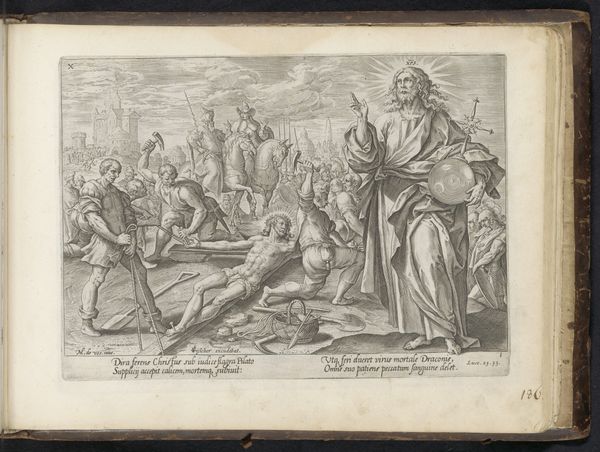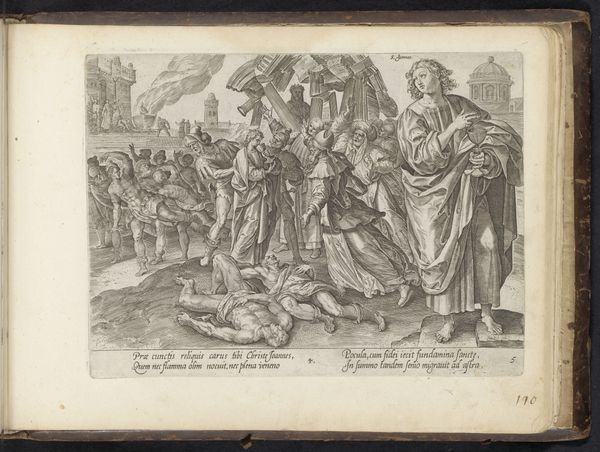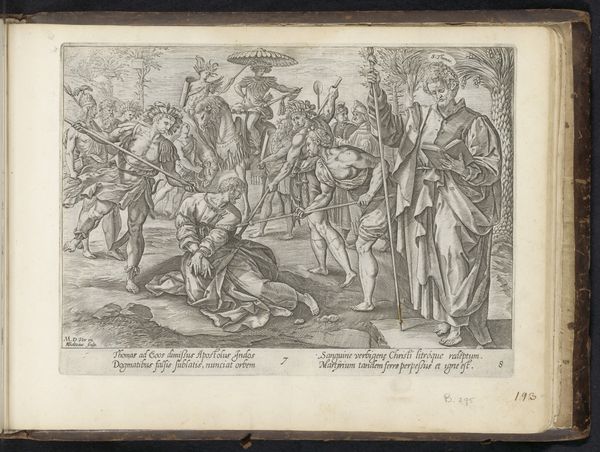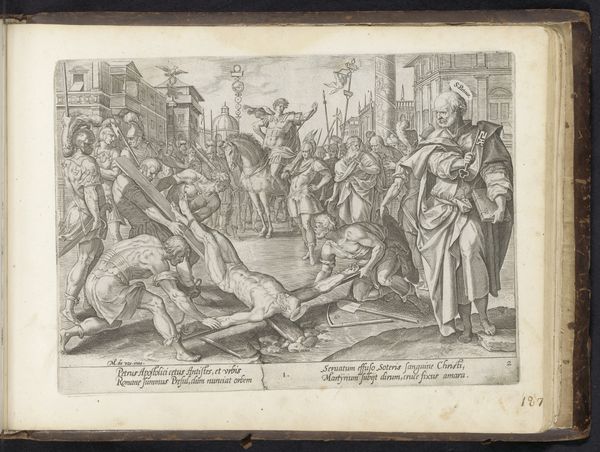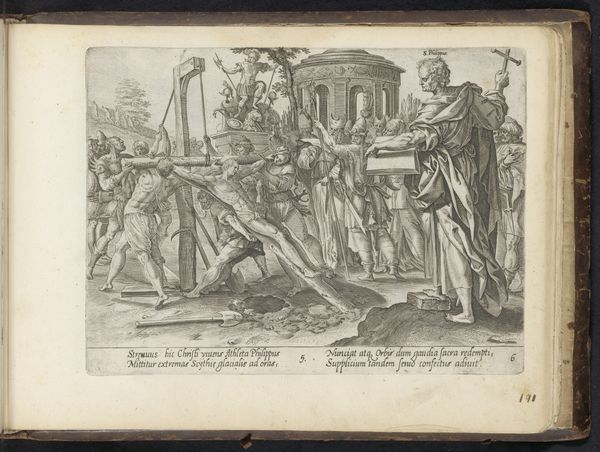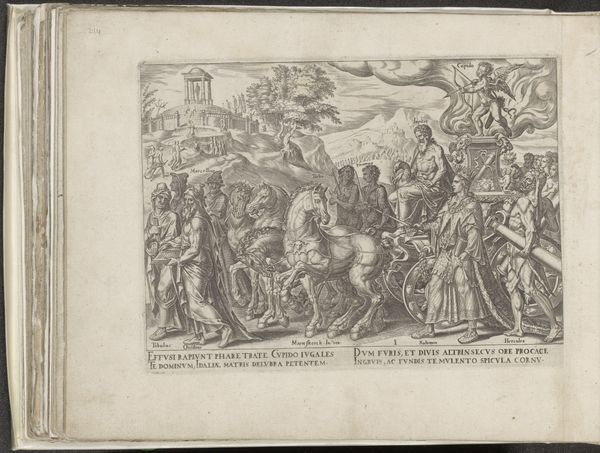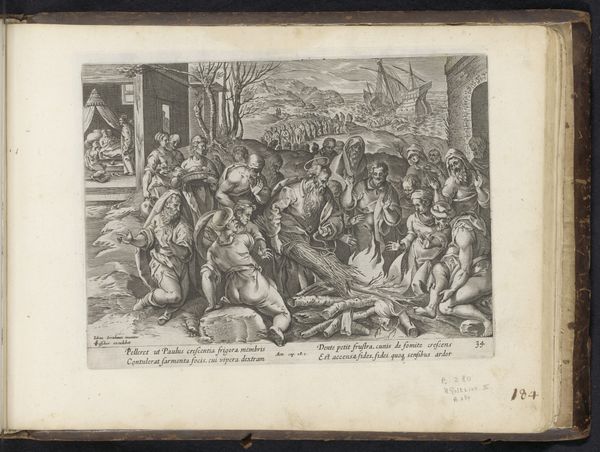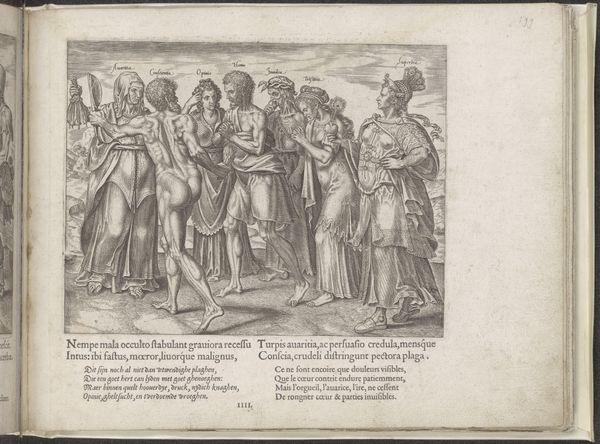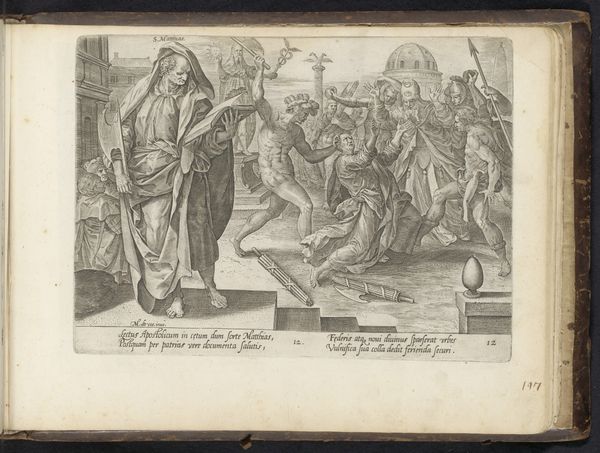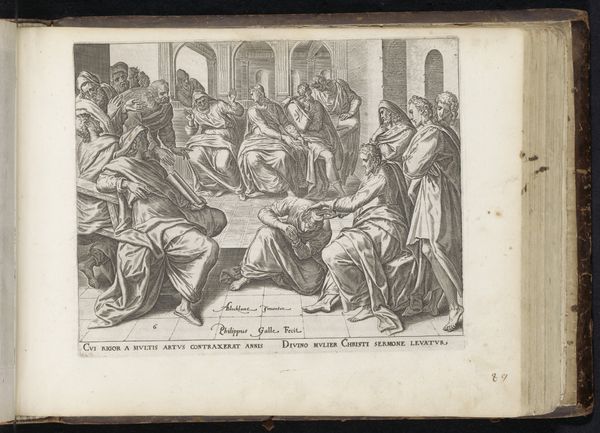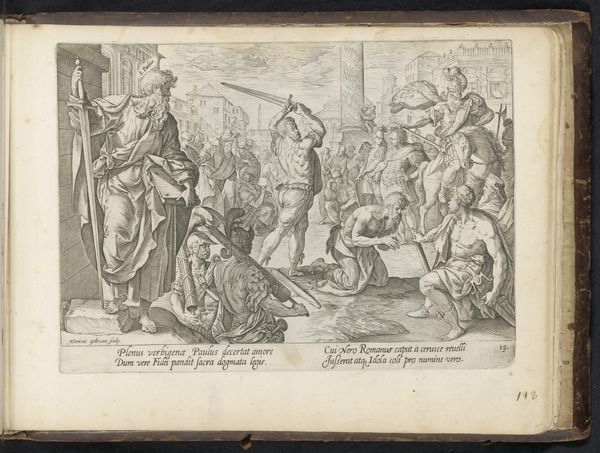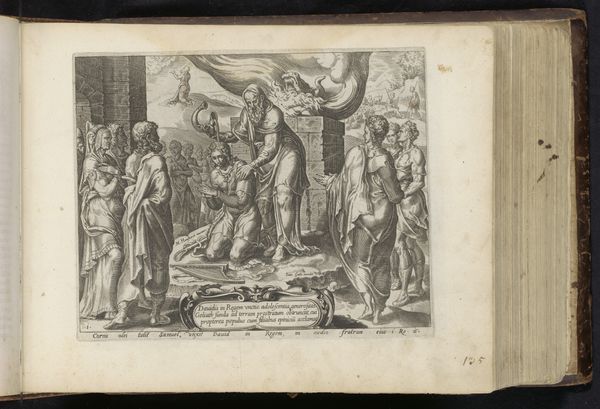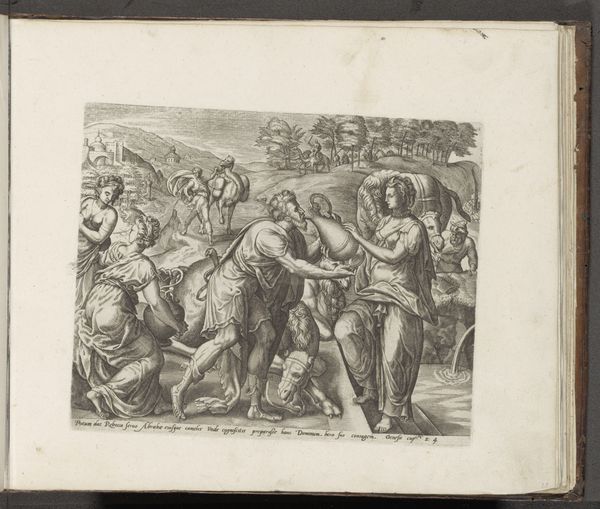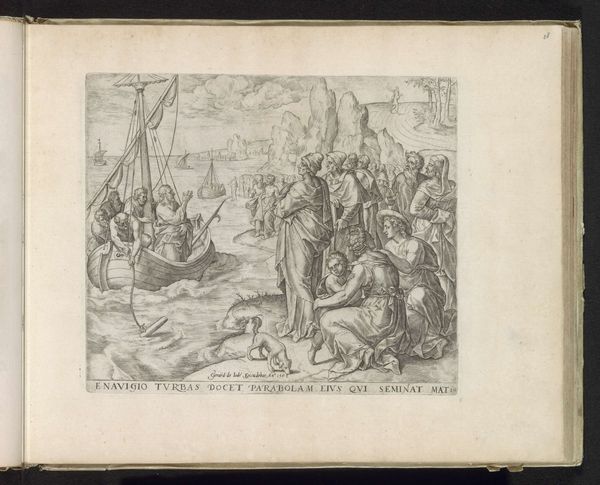
print, engraving
#
narrative-art
#
baroque
# print
#
figuration
#
history-painting
#
engraving
Dimensions: height 207 mm, width 282 mm
Copyright: Rijks Museum: Open Domain
This engraving, The Martyrdom of St. Andrew, was made by an anonymous artist in the Netherlands. Though undated, the style suggests it comes from the late 16th or early 17th century when the Dutch Republic was fighting for independence from Catholic Spain. The print depicts the gruesome death of St. Andrew, who was crucified for his Christian beliefs. The image creates meaning through visual codes that draw on classical antiquity. The Roman soldiers and classical architecture in the background refer to the historical context of St. Andrew's martyrdom. The artist likely aimed to draw parallels between the suffering of early Christians and the struggles of the Dutch people against Spanish oppression. The Rijksmuseum's collection records document the complex interplay between religious, political, and artistic developments during the Dutch Golden Age. Studying prints like this one allows us to understand the powerful role art played in shaping public opinion and bolstering resistance movements during times of conflict.
Comments
No comments
Be the first to comment and join the conversation on the ultimate creative platform.
